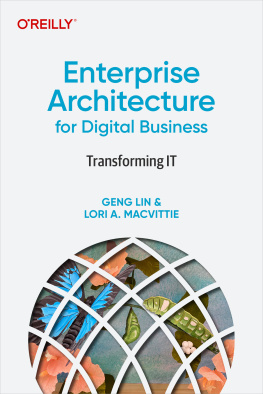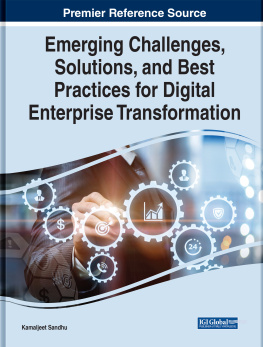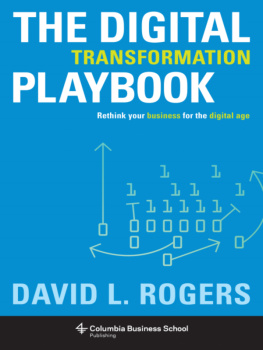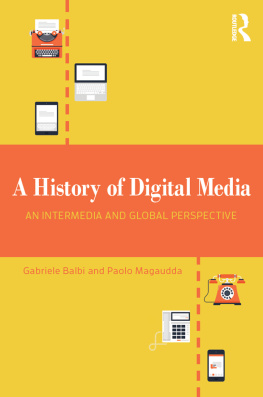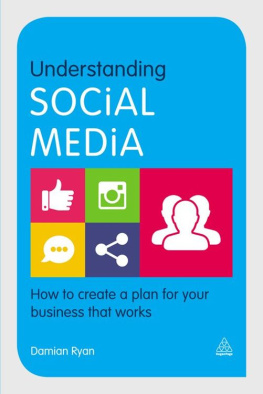
Understanding the Business of Global Media in the Digital Age
This new introductory textbook provides students with the tools they need to understand the way digital technologies have transformed the global media business of the 21st century. Focusing on three main approachesmedia economics, critical political economy, and production studiesthe authors provide an empirically rich analysis of ownership, organizational structures and culture, business strategies, markets, networks of strategic alliances, and state policies as they relate to global media. Examples throughout involve both traditional and digital media and are taken from different regions and countries to illustrate how the media business is influenced by interconnected historical, political, economic, and social factors. In addition to introducing todays convergent world of global media, the book gives readers a greater understanding of their own potential roles within the global media industries.
Micky Lee is an Associate Professor of Media Studies at Suffolk University, Boston, USA. She has published in feminist political economy, information and communication technologies, and finance, information, and the media.
Dal Yong Jin is Professor in the School of Communication at Simon Fraser University, Canada. His major research and teaching interests are in social media and platform technologies, mobile technologies and game studies, media (de-)convergence, globalization and media, transnational cultural studies, and the political economy of media.
Understanding the Business of Global Media in the Digital Age
Micky Lee and Dal Yong Jin
First published 2018
by Routledge
711 Third Avenue, New York, NY 10017
and by Routledge
2 Park Square, Milton Park, Abingdon, Oxon OX14 4RN
Routledge is an imprint of the Taylor & Francis Group, an informa business
2018 Taylor & Francis
The right of Micky Lee and Dal Yong Jin to be identified as the authors of this work has been asserted by them in accordance with sections 77 and 78 of the Copyright, Designs and Patents Act 1988.
All rights reserved. No part of this book may be reprinted or reproduced or utilised in any form or by any electronic, mechanical, or other means, now known or hereafter invented, including photocopying and recording, or in any information storage or retrieval system, without permission in writing from the publishers.
Trademark notice: Product or corporate names may be trademarks or registered trademarks, and are used only for identification and explanation without intent to infringe.
Library of Congress Cataloging-in-Publication Data
A catalog record for this book has been requested
ISBN: 978-1-138-68896-4 (hbk)
ISBN: 978-1-138-68898-8 (pbk)
ISBN: 978-1-315-53796-2 (ebk)
Typeset in Berling and Futura
by Apex CoVantage, LLC
eResources are available for this title at: www.routledge.com/9781138688988
At the end of the chapter, students will be able to:
- list economic decisions that consumers make;
- differentiate economic from business decisions in the media industry;
- suggest how an approach would lead to different sets of questions asked about the media industry;
- state how the five objectives relate to students career goals;
- explain why an economy lens is inadequate to understand the media business.
We want you to think about the last film that you watched or the last song that you listened to. We want you to think about what economic decisions you made to watch the film or listen to the song. For example, how much did you pay to watch the film or listen to the song? If you did not pay for it but got it for free, who paid on your behalf? What were other ways that you could watch the same film or listen to the same song? If there were alternatives, why did you choose one way over others?
We asked ourselves the same questions, and one of us wrote:
I watched a documentary film directed by an Asian American based in San Francisco. The filmmaker uploaded the film on Vimeoa video-sharing website developed in the U.S.and provided me with the password. I watched it for free, but only because I was deciding whether the college library should purchase a copy. If I did not watch it on Vimeo, I could purchase a copy of the film for personal use. I did not choose the alternative because I watched it for work and I knew the personal copy cannot be used for classroom screening. I knew the filmmaker would allow me to preview it for free if I would eventually ask the library to buy a public screening copy that costs fifteen times more than a personal copy. I made a series of economic decisions to watch the film: I have limited money to spend so I have to decide how I should spend it; I also have limited time to find out the alternatives so I have to balance how much I want to spend with how much time I want to spend to find out about the alternative means.
Now we want you to think from the point of view of the producers: what kinds of business decisions did they make so that their products can be delivered to the consumers? For example, how did the producers price their products? How much profit did they make from your purchase? How did they decide the platforms on which their products are delivered? Do you think they are aware that their products are available for free? If they are aware of the fact, what decisions were made to provide a free copy or to control the circulation of free copies?
For the Asian American filmmaker, her markets are mainly educational institutions, community centers, and public television. Film screening for students and community members requires a public screening license even if the audience does not pay to see the film. Therefore, a public viewing copy is priced much higher than a personal copy. The filmmaker probably takes in almost every dollar paid by the library. Because she owns the copyrights of her film, she does not need to pay another party when she sells a copy of the film. Her film can only be viewed from three platforms: DVD, Vimeo, and online streaming. She distributes her own work so it is not available on any rental service. However, the film is available on an online educational streaming service that is subscribed to by university libraries. Anyone with access to the database can watch the film. Because she provided me with the password to preview the film on Vimeo, many others must have watched the film this way. Why would she trust that I do not show the Vimeo copy in class? First, both she and I know that the video quality is low; the image does not look good enough for a big screen. Second, both she and I know that libraries usually have a budget to acquire educational films, so instructors rarely pay out of their own pocket for a public viewing copy. The above shows that the filmmaker has made a series of business decisions so that her products can be delivered to the audience and that she can make enough money to cover the cost of producing, distributing, and marketing the film.





